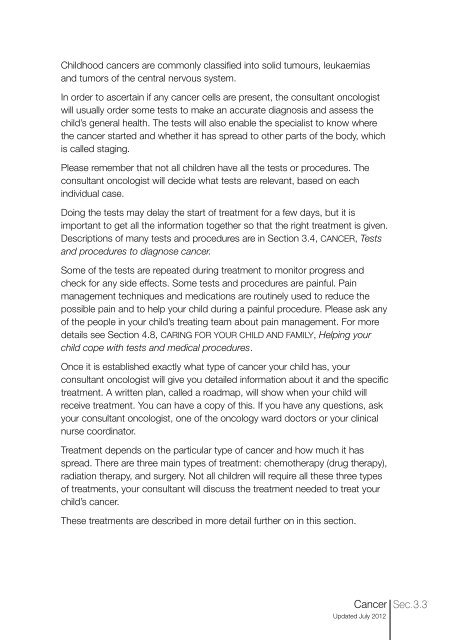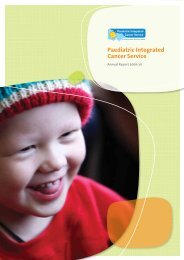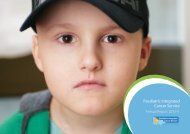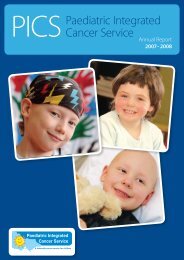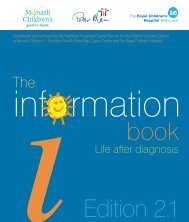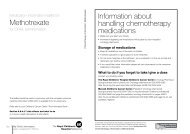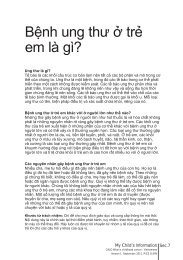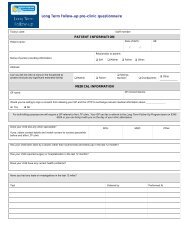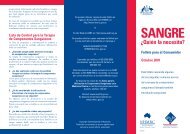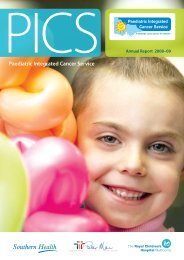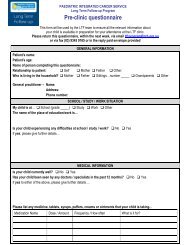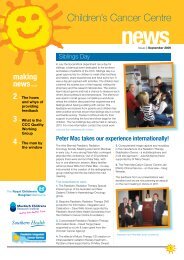The Information Book Edition 3 - Paediatric Integrated Cancer Service
The Information Book Edition 3 - Paediatric Integrated Cancer Service
The Information Book Edition 3 - Paediatric Integrated Cancer Service
- No tags were found...
You also want an ePaper? Increase the reach of your titles
YUMPU automatically turns print PDFs into web optimized ePapers that Google loves.
Childhood cancers are commonly classified into solid tumours, leukaemiasand tumors of the central nervous system.In order to ascertain if any cancer cells are present, the consultant oncologistwill usually order some tests to make an accurate diagnosis and assess thechild’s general health. <strong>The</strong> tests will also enable the specialist to know wherethe cancer started and whether it has spread to other parts of the body, whichis called staging.Please remember that not all children have all the tests or procedures. <strong>The</strong>consultant oncologist will decide what tests are relevant, based on eachindividual case.Doing the tests may delay the start of treatment for a few days, but it isimportant to get all the information together so that the right treatment is given.Descriptions of many tests and procedures are in Section 3.4, CANCER, Testsand procedures to diagnose cancer.Some of the tests are repeated during treatment to monitor progress andcheck for any side effects. Some tests and procedures are painful. Painmanagement techniques and medications are routinely used to reduce thepossible pain and to help your child during a painful procedure. Please ask anyof the people in your child’s treating team about pain management. For moredetails see Section 4.8, CARING FOR YOUR CHILD AND FAMILY, Helping yourchild cope with tests and medical procedures.Once it is established exactly what type of cancer your child has, yourconsultant oncologist will give you detailed information about it and the specifictreatment. A written plan, called a roadmap, will show when your child willreceive treatment. You can have a copy of this. If you have any questions, askyour consultant oncologist, one of the oncology ward doctors or your clinicalnurse coordinator.Treatment depends on the particular type of cancer and how much it hasspread. <strong>The</strong>re are three main types of treatment: chemotherapy (drug therapy),radiation therapy, and surgery. Not all children will require all these three typesof treatments, your consultant will discuss the treatment needed to treat yourchild’s cancer.<strong>The</strong>se treatments are described in more detail further on in this section.<strong>Cancer</strong> Sec.3.3Updated July 2012


